Are you considering taking your business to the next level? Forming an exclusive distribution partnership can open new doors and create exciting opportunities for growth and collaboration. In this article, we'll delve into the key elements and benefits of such partnerships, helping you understand how they can elevate your brand in the marketplace. Let's explore the ins and outs of establishing a successful exclusive distribution partnership together!

Clear Partnership Objectives
The establishment of an exclusive distribution partnership creates a strategic alliance between two entities, ensuring mutual growth and profitability. Clear partnership objectives serve as a guiding framework, defining the scope of collaboration, such as market penetration strategies and sales targets. Key performance indicators (KPIs) must be identified, quantifying success metrics such as revenue goals or market share increase within designated territories. Responsibilities should be distinctly outlined, specifying duties regarding product promotion, inventory management, and customer service standards. Regular evaluation meetings can help assess progress toward objectives and facilitate communication between the partners. Joint marketing initiatives may also be planned, enhancing brand visibility and driving collective sales efforts in environments tailored to specific demographics.
Distribution Rights and Territories
Exclusive distribution partnerships allow companies to leverage established networks and local market knowledge to optimize product reach while ensuring brand representation. For example, in regions like North America and Europe, companies may seek distribution rights for consumer electronics, such as smartphones and accessories, targeting specific territories to maximize sales potential. Successful partnerships often involve detailed agreements that outline distribution rights, specifying cities or countries, sales targets, and marketing responsibilities. Effective collaboration can enhance market penetration, allowing brands to increase visibility and revenue while providing distributors with access to high-demand products and training resources.
Terms and Conditions
An exclusive distribution partnership agreement defines the framework for collaboration between a manufacturer and a distributor. The terms and conditions must outline critical aspects like distribution rights, geographic territories (specific regions such as North America or Europe), product lines (specific models or categories like electronics or apparel), sales targets (quantifiable goals like $100,000 quarterly), marketing responsibilities (advertising strategies or promotional events), and terms of payment (payment schedules or methods such as net 30 days). Additionally, the agreement should clarify the duration of exclusivity (commonly 1 to 5 years), termination clauses (conditions under which the partnership may be dissolved), and dispute resolution methods (processes like mediation or arbitration). Such structured guidelines foster a clear understanding of each party's obligations and protect their interests throughout the partnership's life cycle.
Brand Representation Guidelines
Exclusive distribution partnerships require clear guidelines for brand representation to maintain integrity and consistency across markets. These guidelines include specific criteria for branding elements such as logos, colors, and typography to ensure that the visual identity remains uniform across promotional materials and product packaging. The partnership agreement may specify geographic territories, addressing where products can be sold, which is critical for brand recognition in high-traffic locations or e-commerce platforms. Compliance with industry standards and regulations is also crucial; for example, certifications for health and safety or sustainability may apply depending on product categories. Furthermore, marketing strategies and promotional campaigns must align with the brand's core message to enhance consumer trust. Finally, regular assessments and reviews will be outlined to evaluate adherence to these guidelines, ensuring both parties achieve their business objectives while fostering a strong brand presence.
Confidentiality and Compliance Requirements
An exclusive distribution partnership agreement establishes mutual obligations between parties in the commerce landscape, emphasizing confidentiality and compliance mandates. Confidentiality clauses protect sensitive business information, trade secrets, and intellectual property related to products or services involved in the partnership while ensuring compliance with regulatory standards set forth by governing bodies. Compliance requirements may include adhering to local laws, industry regulations such as those set by the Food and Drug Administration (FDA) for healthcare products or the Federal Trade Commission (FTC) regulations for marketing practices. These agreements typically detail the Division of Responsibilities, outlining the roles between the distributor and the manufacturer, and may specify key performance indicators (KPIs) for sales performance. Confidentiality can encompass specific guidelines on the handling of proprietary data, with breaches potentially leading to legal ramifications or termination of the partnership. Compliance training for employees involved in the partnership may also be mandated to ensure adherence to ethical practices and legal frameworks.

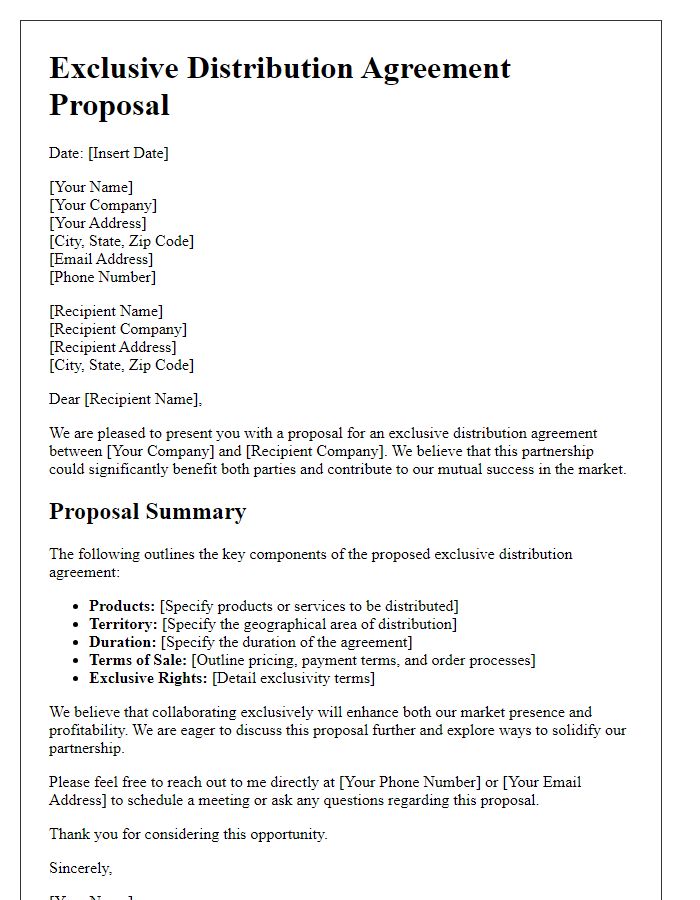
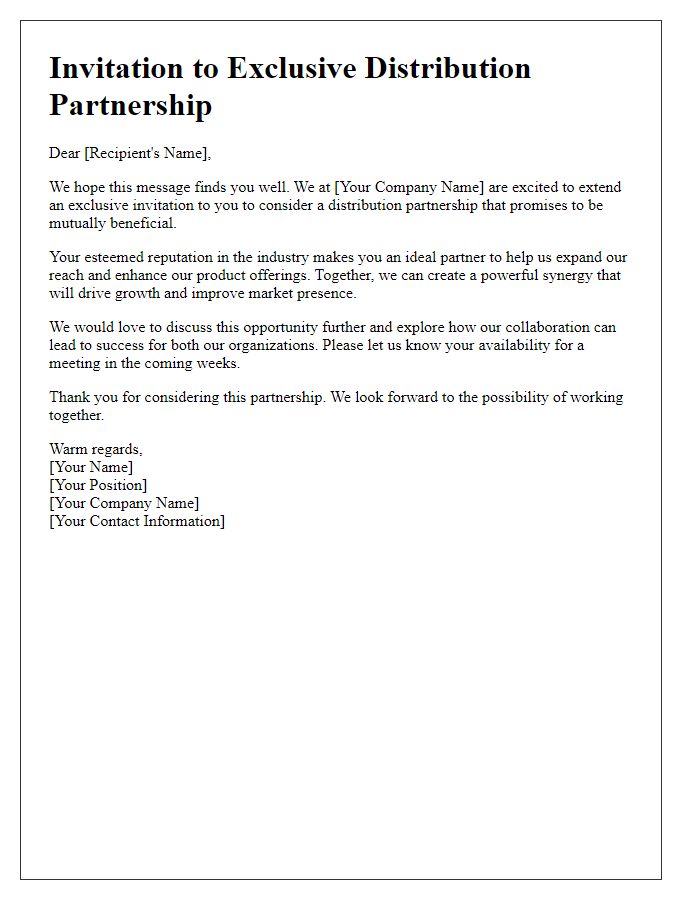
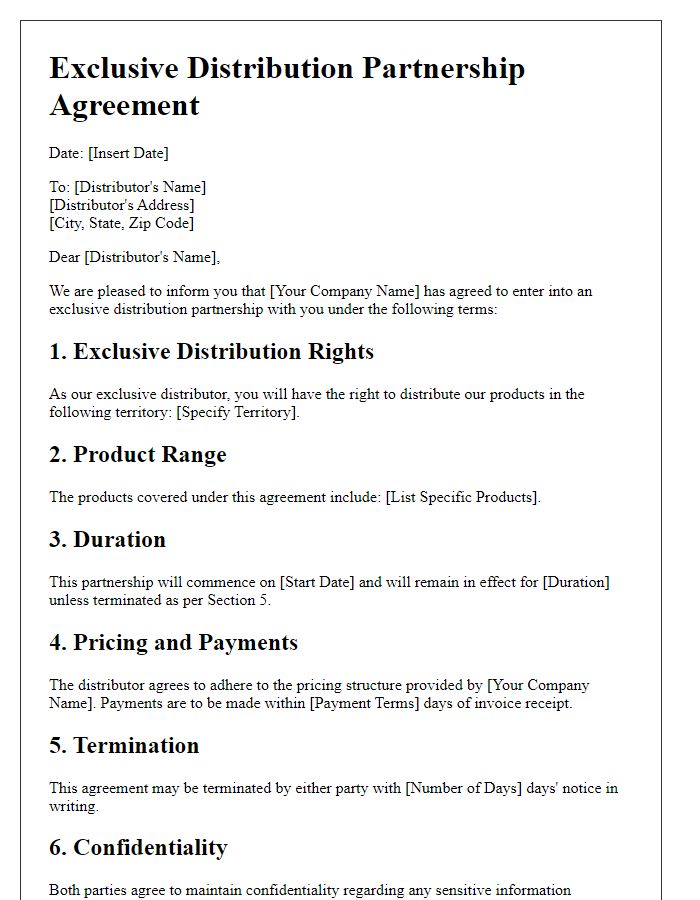
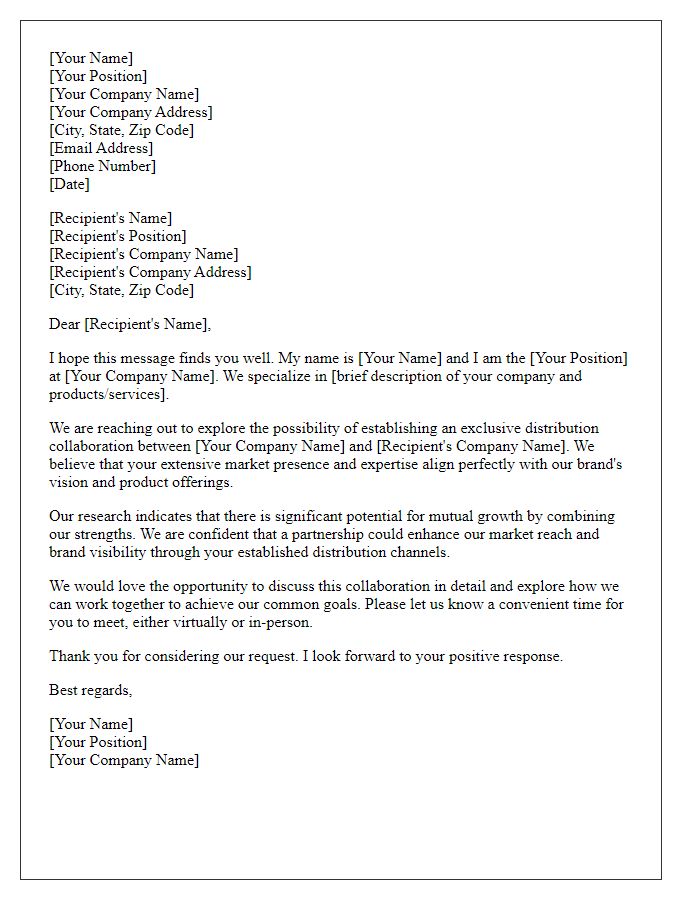
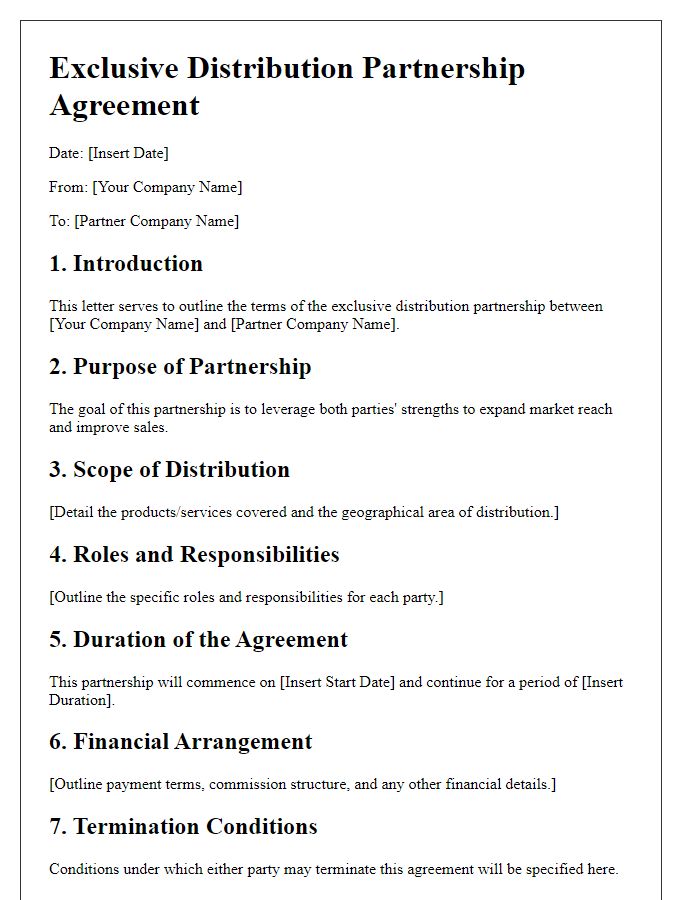
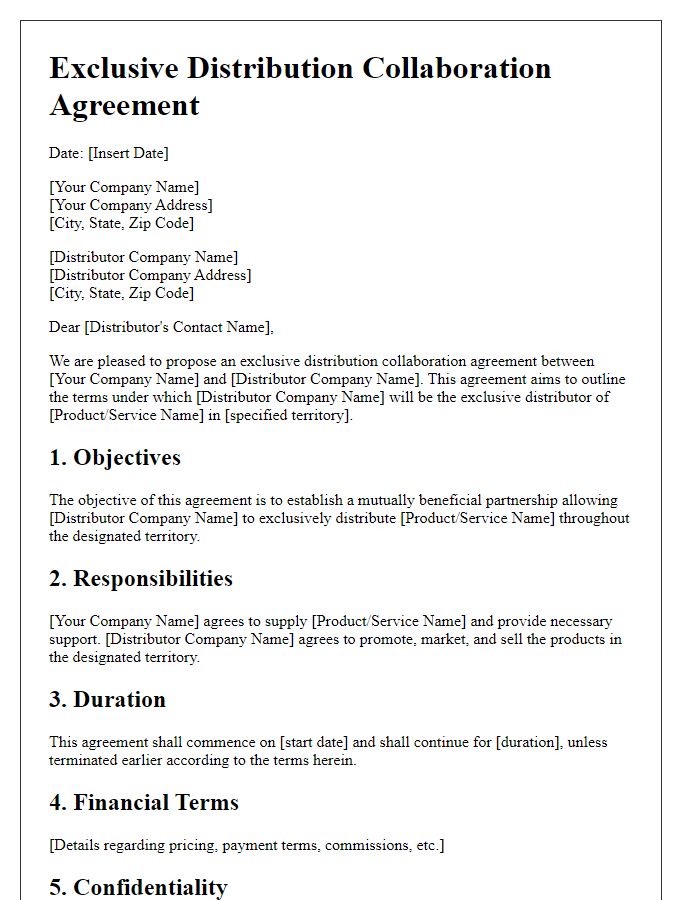
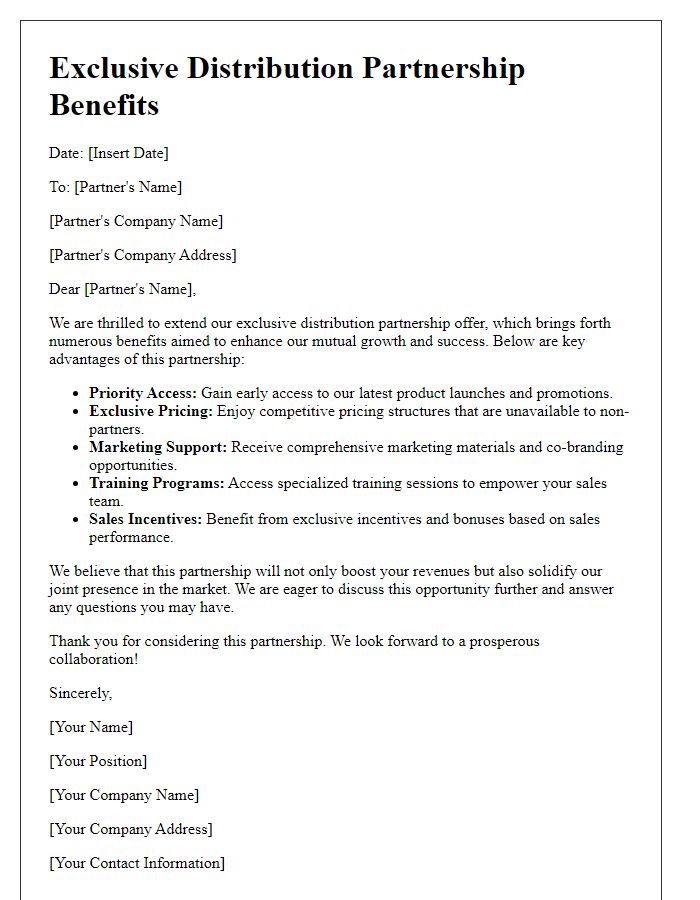
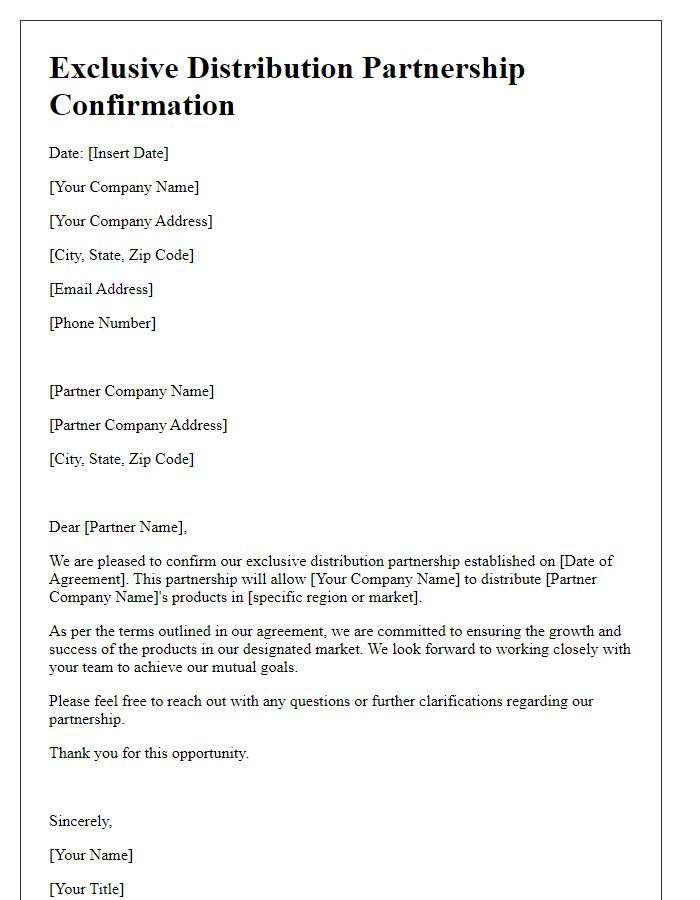
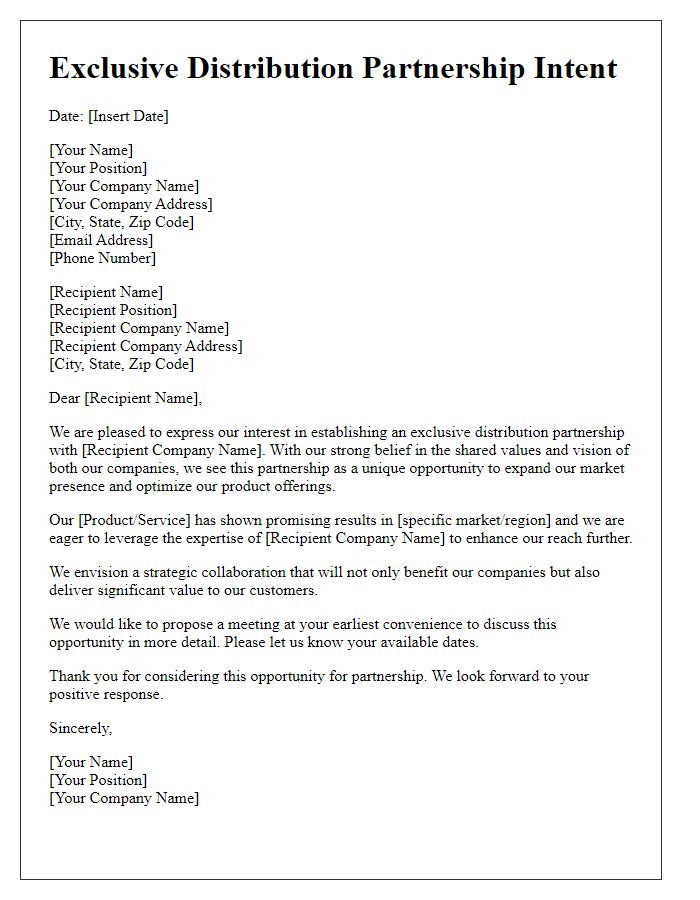
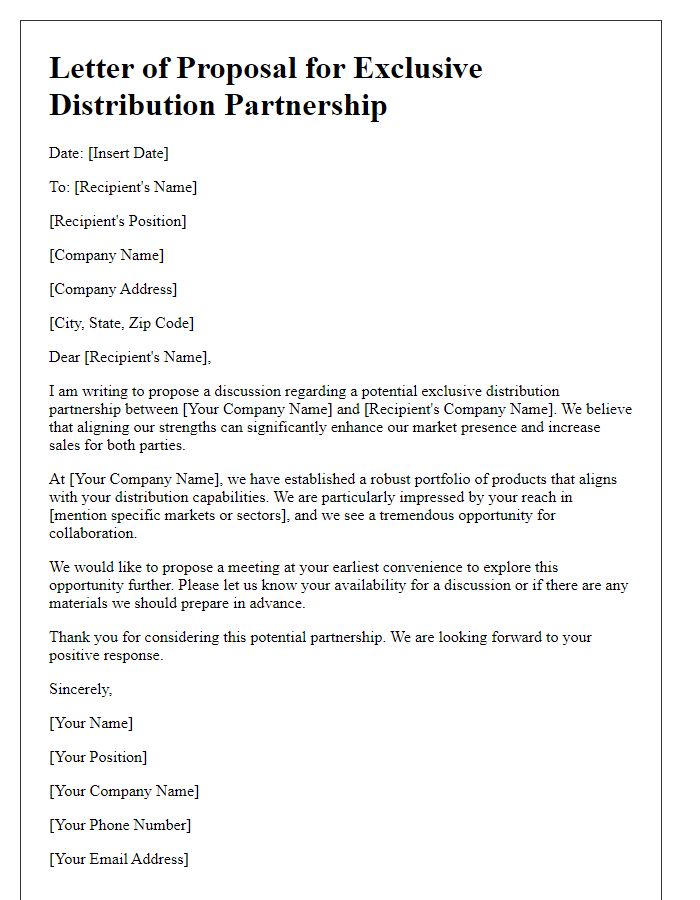


Comments